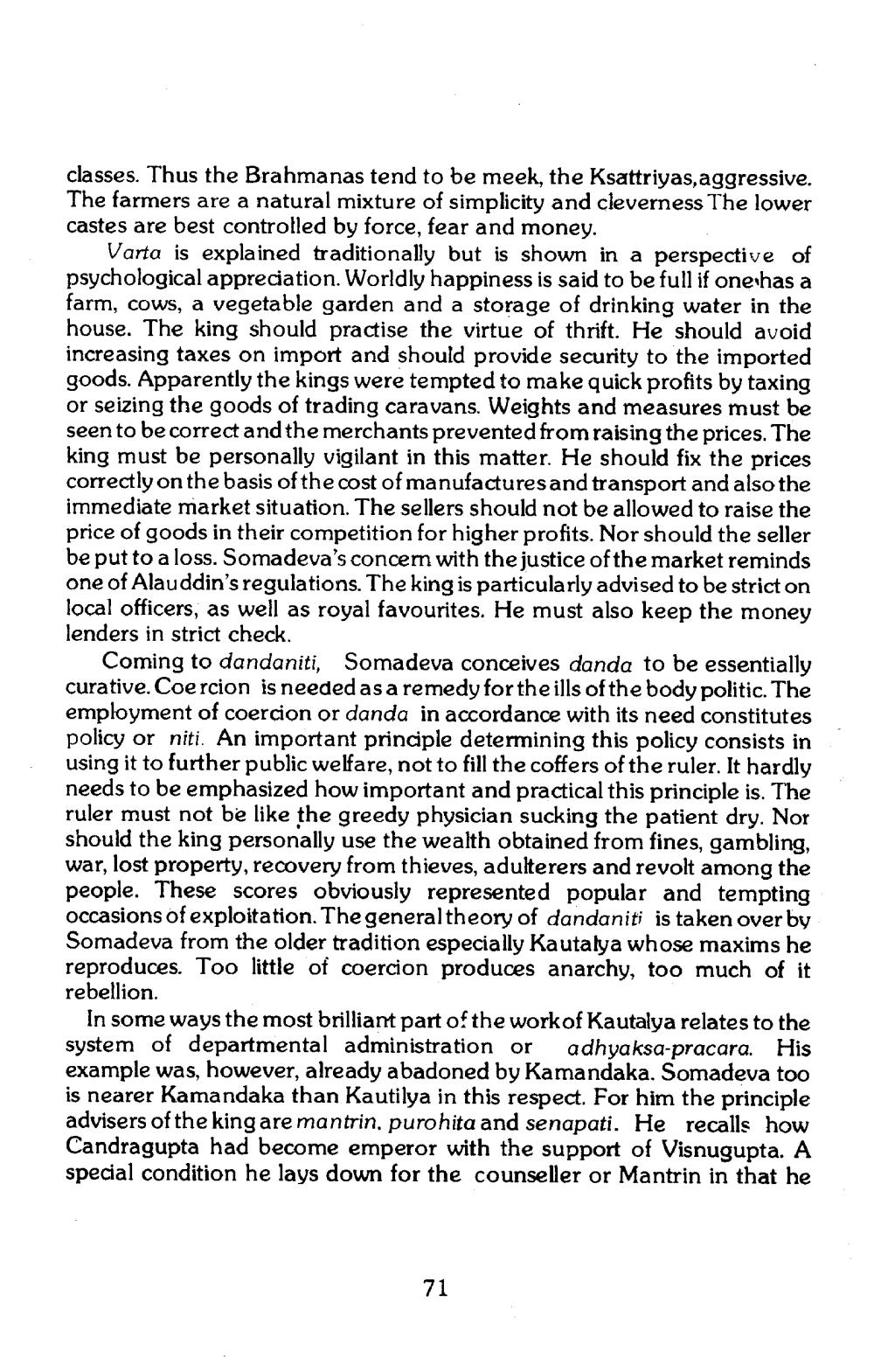________________
classes. Thus the Brahmanas tend to be meek, the Ksattriyas, aggressive. The farmers are a natural mixture of simplicity and cleverness The lower castes are best controlled by force, fear and money.
Varta is explained traditionally but is shown in a perspective of psychological appreciation. Worldly happiness is said to be full if one has a farm, cows, a vegetable garden and a storage of drinking water in the house. The king should practise the virtue of thrift. He should avoid increasing taxes on import and should provide security to the imported goods. Apparently the kings were tempted to make quick profits by taxing or seizing the goods of trading caravans. Weights and measures must be seen to be correct and the merchants prevented from raising the prices. The king must be personally vigilant in this matter. He should fix the prices correctly on the basis of the cost of manufactures and transport and also the immediate market situation. The sellers should not be allowed to raise the price of goods in their competition for higher profits. Nor should the seller be put to a loss. Somadeva's concem with the justice of the market reminds one of Alauddin's regulations. The king is particularly advised to be strict on local officers, as well as royal favourites. He must also keep the money lenders in strict check.
Coming to dandaniti, Somadeva conceives danda to be essentially curative. Coercion is needed as a remedy for the ills of the body politic. The employment of coercion or danda in accordance with its need constitutes policy or niti. An important principle determining this policy consists in using it to further public welfare, not to fill the coffers of the ruler. It hardly needs to be emphasized how important and practical this principle is. The ruler must not be like the greedy physician sucking the patient dry. Nor should the king personally use the wealth obtained from fines, gambling, war, lost property, recovery from thieves, adulterers and revolt among the people. These scores obviously represented popular and tempting occasions of exploitation. The general theory of dandaniti is taken over by Somadeva from the older tradition especially Kautalya whose maxims he reproduces. Too little of coercion produces anarchy, too much of it rebellion.
In some ways the most brilliant part of the work of Kautalya relates to the system of departmental administration or adhyaksa-pracara. His example was, however, already abadoned by Kamandaka. Somadeva too is nearer Kamandaka than Kautilya in this respect. For him the principle advisers of the king are mantrin. purohita and senapati. He recalls how Candragupta had become emperor with the support of Visnugupta. A special condition he lays down for the counseller or Mantrin in that he
71




